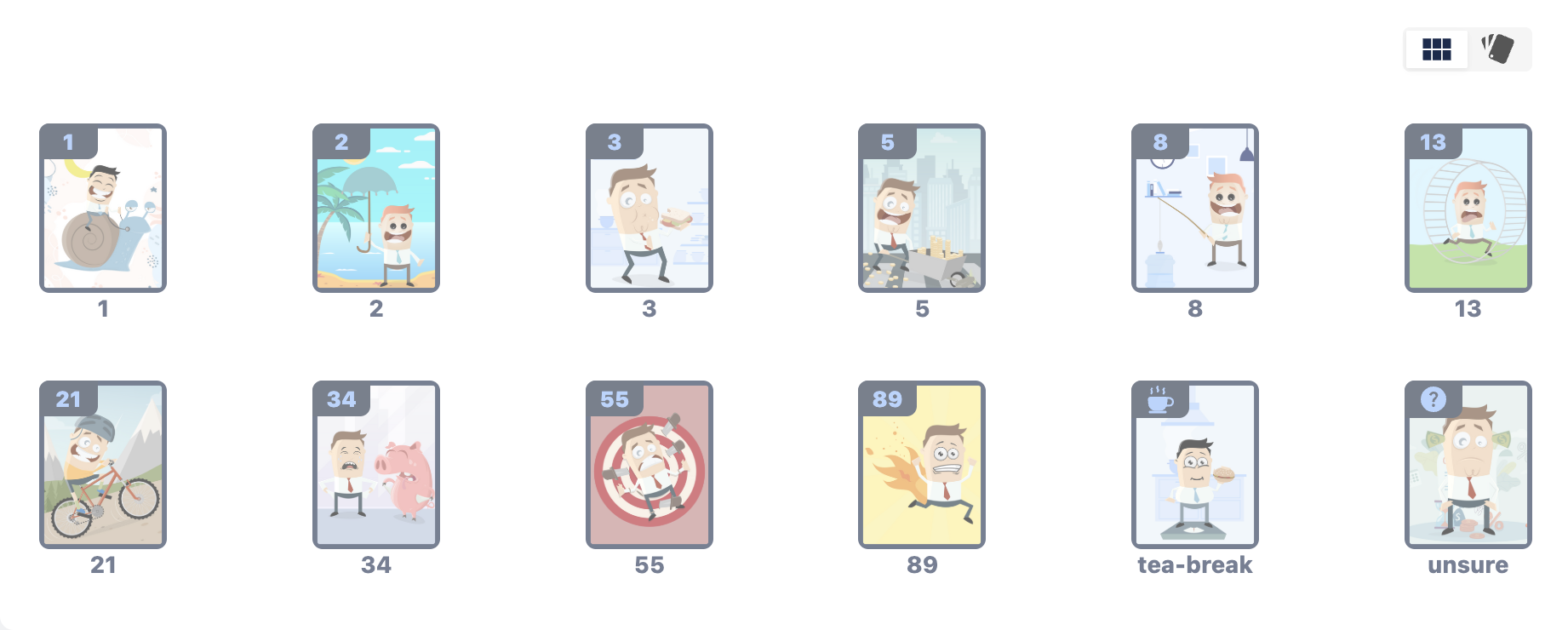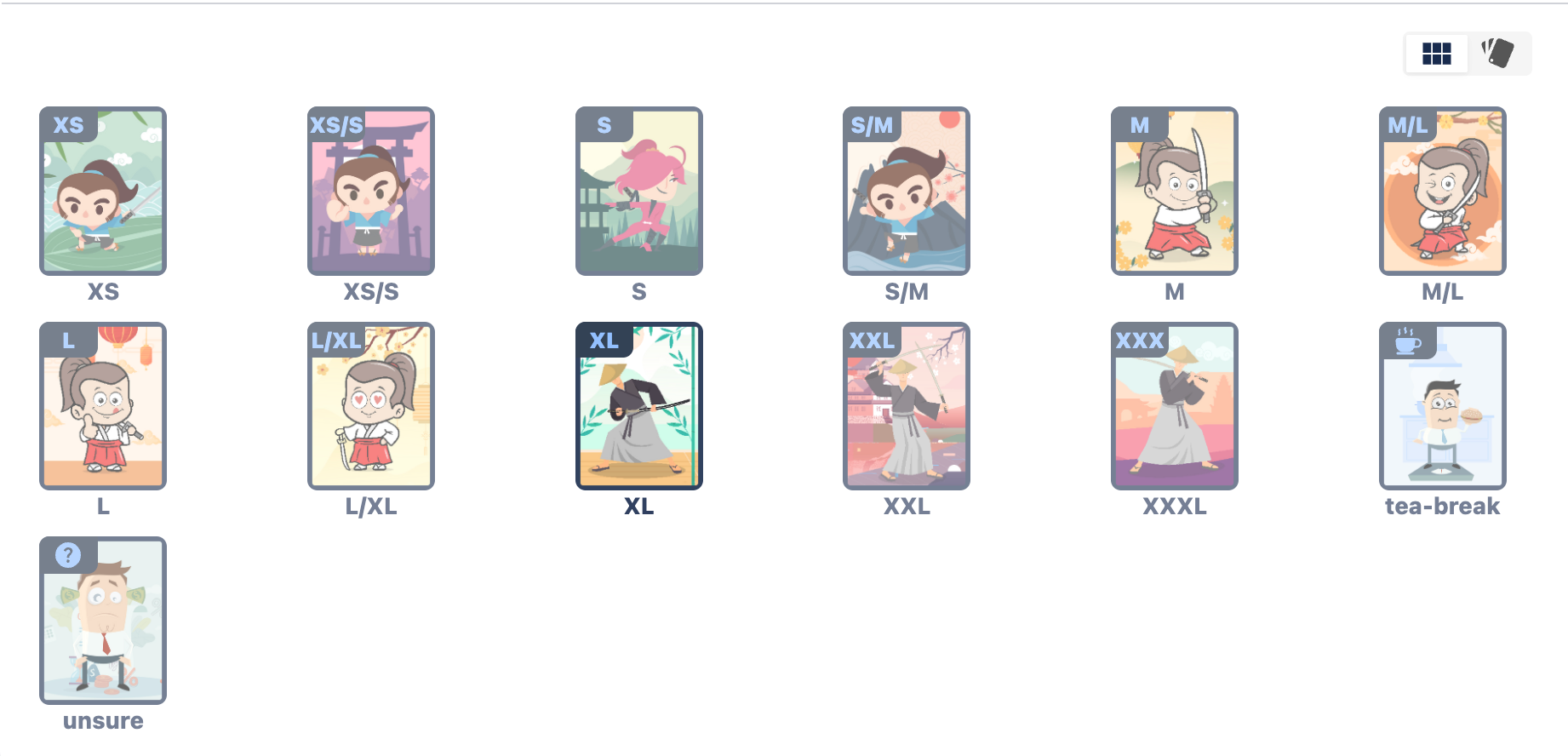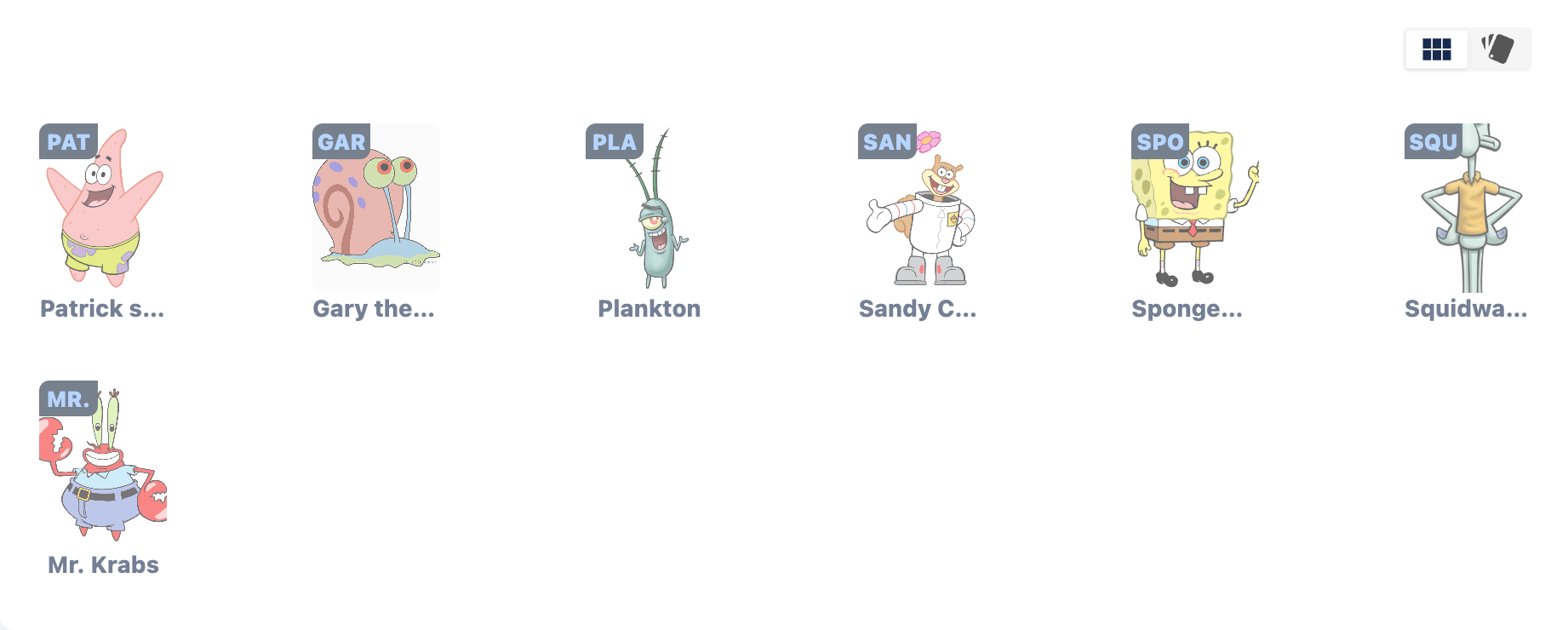Estimation methods
AgileBox offers two default estimation methods (planning poker decks): Fibonacci sequence and T-Shirt size.
To better fit your team's unique needs, you can also create a Custom deck, where you decide the value of each card—letting your team bring creativity into the estimation process.
Fibonacci sequence
The Fibonacci sequence is a series of numbers where each number is the sum of the two previous ones (e.g., 1, 2, 3, 5, 8, 13, 21...). In Agile estimation, this sequence is adapted to include values like 1, 2, 3, 8, 13, and so on, plus special cards like tea-break and unsure.

Why it works:
It reflects the growing uncertainty in estimating larger tasks—the bigger the task, the less precise the estimate, so values jump exponentially rather than linearly.
The increasing gaps between numbers encourage meaningful discussions and consensus, as team members debate between distinct effort values rather than close numbers.
It provides a common language for relative estimation, allowing teams to compare new tasks with previously completed ones easily.
This method makes estimating complex work more manageable and accurate.
To customize, go to Fibo decks in System settings
T-Shirt size
This method uses familiar clothing sizes (XS, S, M, L, XL, etc.) to represent relative effort or complexity. AgileBox maps these sizes to story point values like XS = 1, S = 3, M = 8, and so forth. The deck includes a progression of 13 sizes plus tea-break and unsure cards.

Why it works:
It provides an intuitive, non-numeric way to estimate that’s easy for all team members to understand and relate to.
Size categories simplify the thinking process, especially when teams find precise numeric estimation challenging.
Using sizes fosters quicker consensus by focusing discussion on effort level categories rather than exact numbers.
This method is great for teams seeking a simple, approachable estimation process.
To customize, go to T-shirt decks in System settings
Custom deck
Custom decks let your team create a fully personalized set of cards with values that best fit your projects and workflow. This flexibility allows adaptation for different project types, team preferences, or unique estimation scales.

Why it works:
Teams can tailor estimation scales to their specific needs, improving relevance and accuracy.
It encourages creativity and ownership over the estimation process.
Allows blending numeric or non-numeric values, special cards, or additional symbols to suit the team’s style.
To edit or create your custom decks, go to Custom decks in System settings
.png)